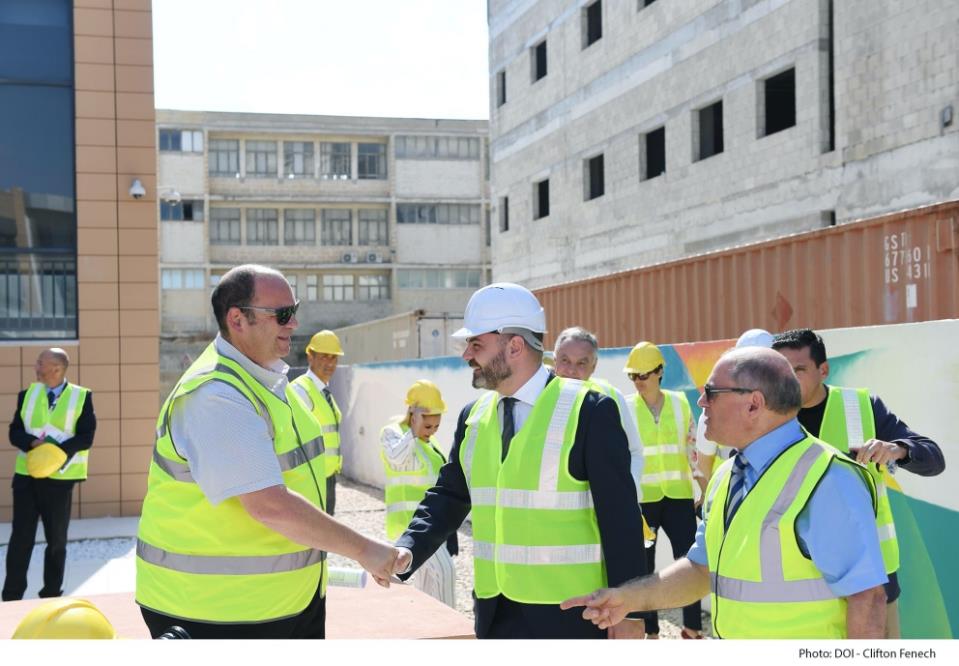Throughout Europe, Ministries of Education rapidly put in place measures linked to the closure of schools and launched remote teaching initiatives to support school leaders, teachers, parents, and of course students, in this exceptional period.
I have had the occasion to write about the success of online teaching and learning during COVID-19 in our country, and so I was pleased when I read an article in which two Maltese schools were mentioned as being amongst the best in the world in using this platform.
The Birkirkara and Zejtun primary schools placed second and third respectively – in the world - for the best use of the digital platform during COVID. This platform, called J2Webb, allows schools to maintain ongoing contact with their students while providing a place for students to exhibit their work with their peers.
This goes to show the commitment of our educators during this period, and their eagerness to grasp and adopt the new methods we had to introduce to carry on with the scholastic curriculum during school closure. A particular comment caught my attention. Commenting on this achievement, Birkirkara’s College Head said that this platform helped certain students who usually take a step back in class, move forward due to the fact that this online method helped them in more ways than one to express themselves in a more relaxed and independent manner. Even Zejtun’s College Assistant Head remarked that this system helped students who usually do not participate that much during class, to express themselves in a more open manner.
It took just a couple of weeks for educators and school administrators to adopt and become familiar with this system, and to adopt it for their online teaching and to keep in contact with their respective students.
Again I thank all educators who were in the forefront in helping our nation-wide school community to provide support and continuity in this unprecedented situation, and congratulate the Birkirkara and Zejtun Primary Schools in this achievement.
+++
Work in Qawra’s new school are in an advanced state, the Resource Centre project at MCAST Campus is well underway and excavations at the new Msida Primary School site are ready with building works starting in a couple of weeks.
As reported in this newspaper on Monday, this project is being done with an investment of approximately €13 million, all of which are national funds. The school will open its doors to children in the next scholastic year.
The school is spread on 9,500 square metres. It will have 39 classrooms for 500 students, a hall which can accommodate up to 400 people, as well as a kindergarten and a childcare centre, with an underground carpark for 400 cars.
The €10 million, co-financed by the European Regional Development Fund 2014-2020 (ERDF), Resource Centre project at MCAST Campus is well underway and the project is expected to be completed by the start of the 2021-2022 academic year.
The Centre, with a footprint of approximately 2,300 square meters over 4 floors, is in its final phase. Facilities include, but not only, 2 exhibition spaces, an auditorium, 14 offices for directors and managers, 2 boardrooms, 16 lecture rooms and tutorial rooms, a cafeteria, a library on 2 floors, and also a working area, a study area, outside seating, a project room and a games room.
The building will house a number of the college’s activities, including the MCAST Centre for Research and Innovation, the Learning Support Unit, as well as the Learning Resource Centre and the Library and adequate facilities for students who are specializing in specific vocational fields as required by the industry.

This significant investment is very important as it will further develop the college’s physical environment. More importantly, we want to invest in our students and educators. This centre is an example of building learning spaces with the latest technology for the benefit of today’s students and future generations. This is not simply an investment in buildings. We want to create a space for educators and students to develop creative and innovative work, a space that facilitates communication and collaboration beyond the classroom setting. As time passes, we are seeing that more students are choosing vocational subjects as their main studies, and I am pleased to see that MCAST is taking the necessary steps forward for such an institution to grow.
The new Primary school in Msida, replacing the old one, will also incorporate a Child Care Centre and a Kindergarten and will also have underground parking facilities. This is an investment of about €4 million and is also another project by The Foundation for Tomorrow Schools.
We will continue to improve on our schools’ environment and infrastructure as we strongly believe that we should give our best to our children, and our commitment is to do this in the best possible manner.
+++
More than ever, teachers require a clear idea of the art and science of teaching and learning in various educational contexts.
A new textbook I was presented with this week provides a structured and detailed overview of the teaching cycle: planning, delivery and reflection upon this complex and multifaceted experience. The main thrust of this textbook is that the educational experience of students can become more positive and effective based on how much artistry teachers demonstrate in weaving together the different components of the teaching/learning cycle along the education journey of their students.
The author of ‘L-Esperjenza tat-Tagħlim’ is Dr Terence Portelli, a senior lecturer within the Faculty of Education at the University of Malta, with a specialisation in the teaching of Maltese.
The book is divided into eight main sections, with each section detailing several important aspects of teaching and learning.
Another good resource for all educators.